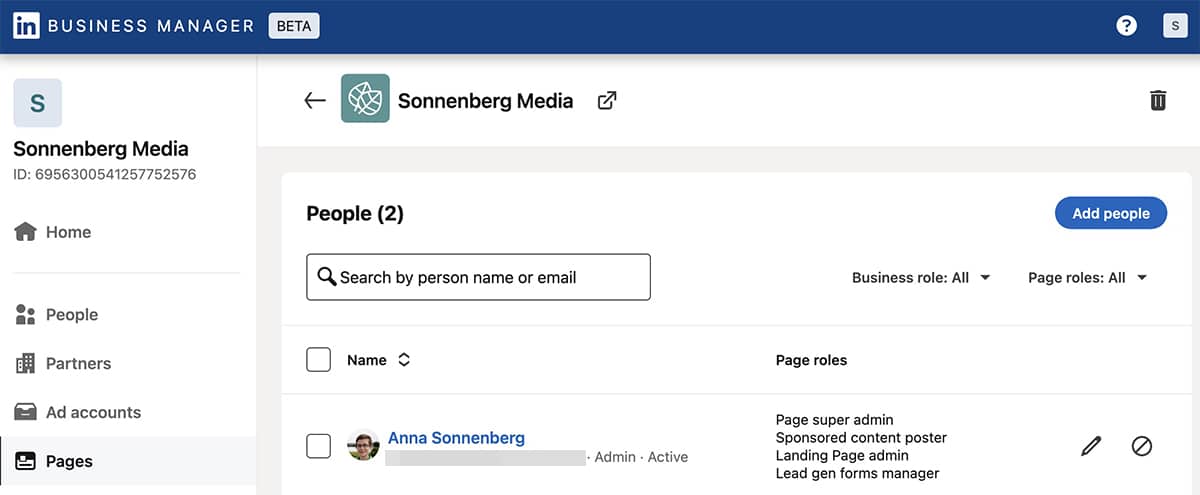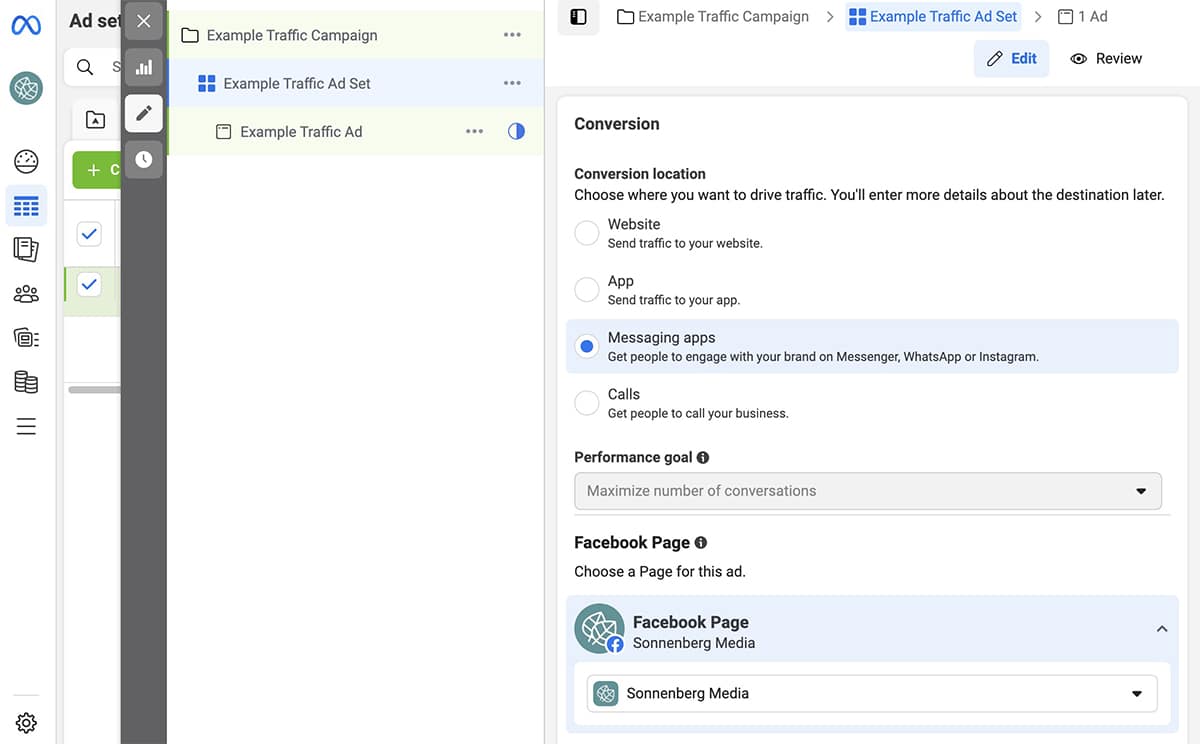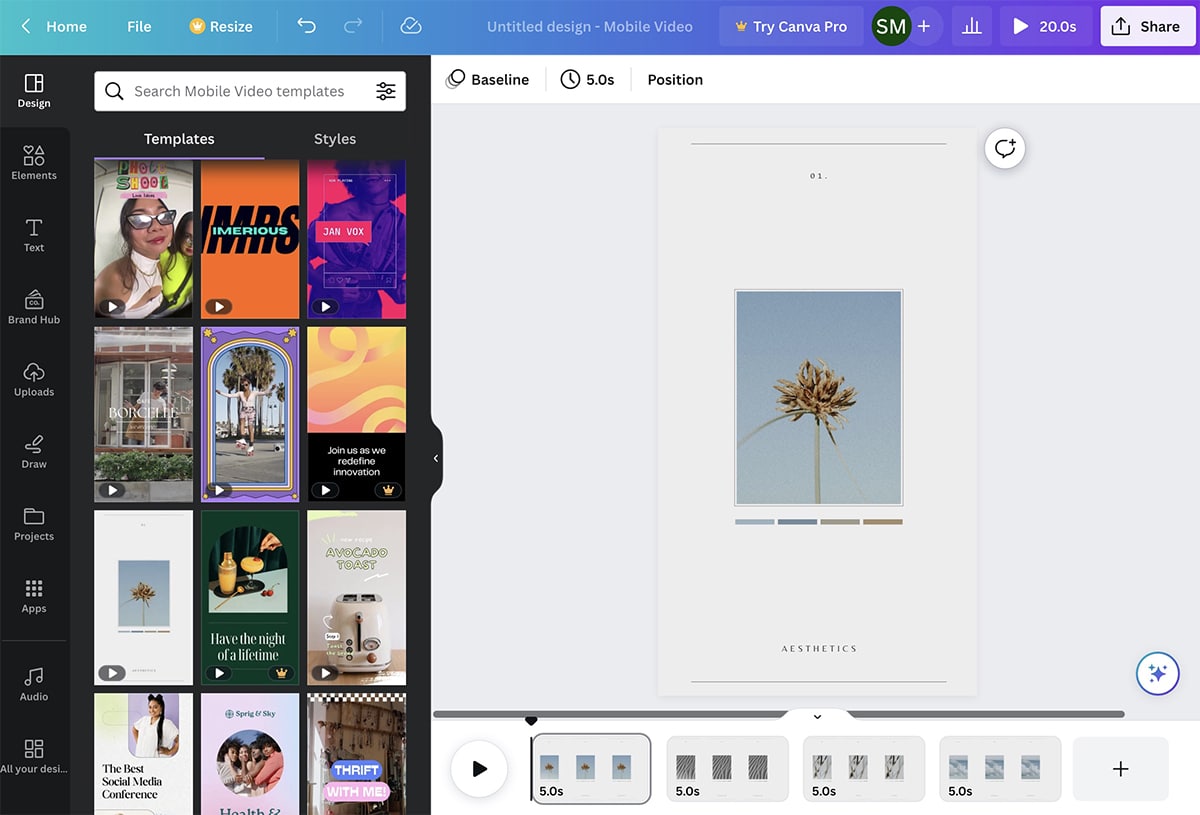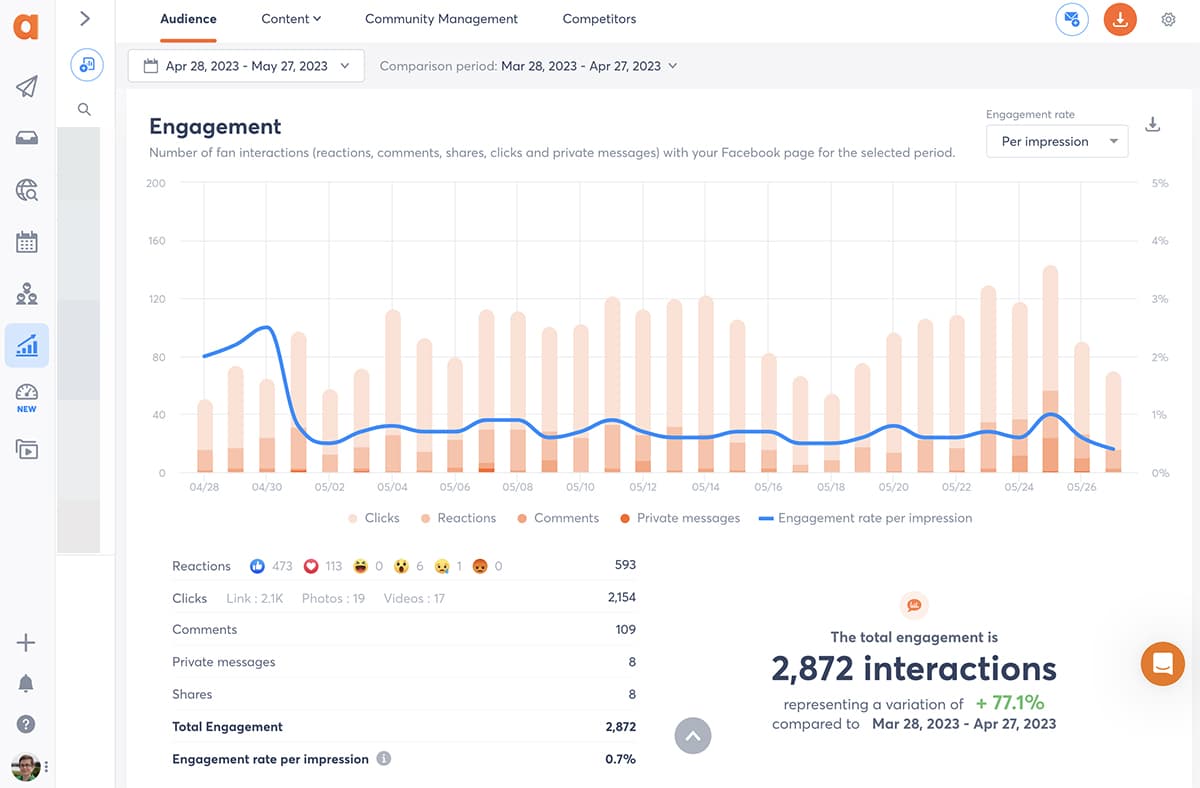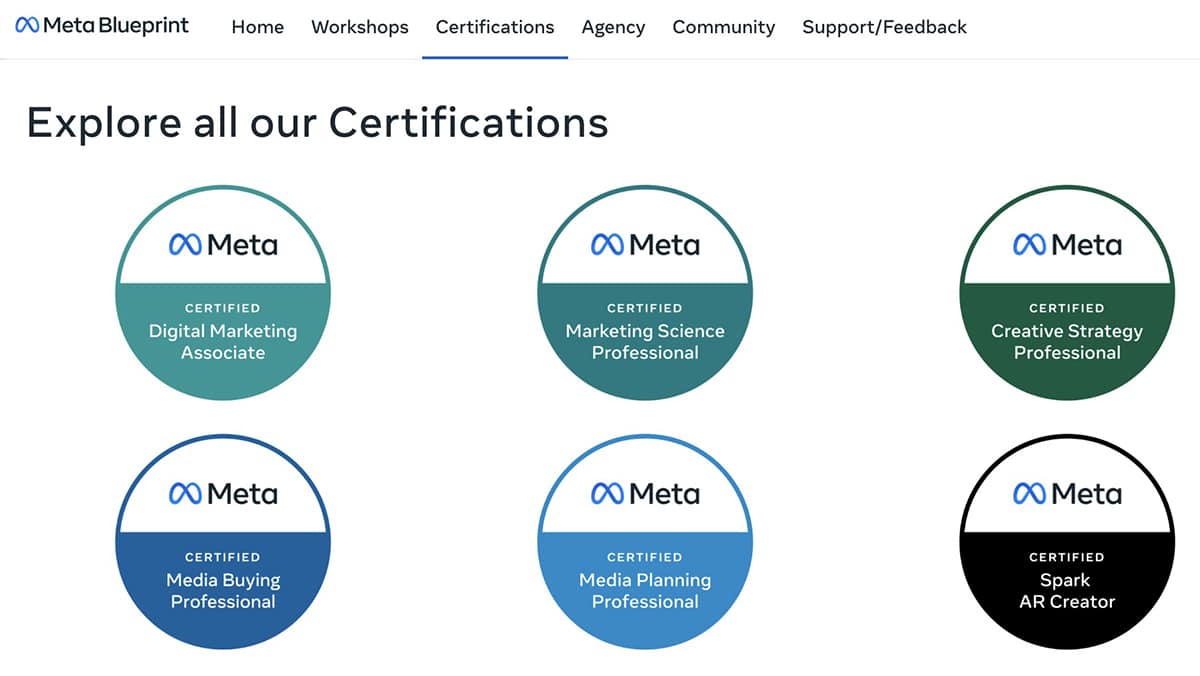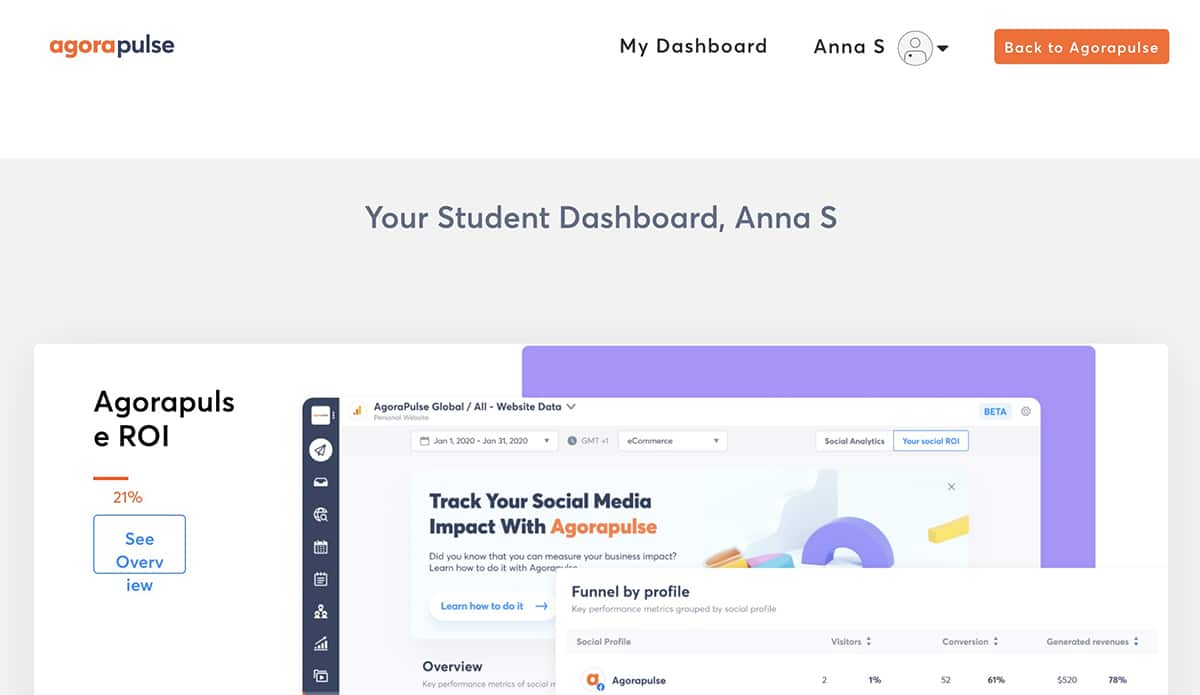As a marketing leader, you need a capable team to implement your strategy, develop campaigns, and manage key channels. For most chief marketing officers (CMOs), that means hiring someone to run social media. So what should you look for in a social media manager hire?
And how do you decide whether to create an in-house role or contract a freelancer? How do you screen and vet candidates?
In this guide, we’ll cover everything you need to know about hiring in social media—including which qualities to look for, what type of role to create, and how to write a compelling job listing.
Why You Should Hire a Social Media Manager
Do you need to get buy-in for your hiring decision? Start by quantifying the benefits below.
Your audience is on social media—but your business isn’t
It’s easy to assume that every business should be on social media. Although that’s a good rule of thumb, you should assess whether your audience is on social media or using a certain channel before deciding to invest.
You can get a general sense by checking demographics for certain social channels. For example, if your brand’s audience is based in the United States and aged 18 to 30 years old, you’ll almost certainly benefit from investing in TikTok.
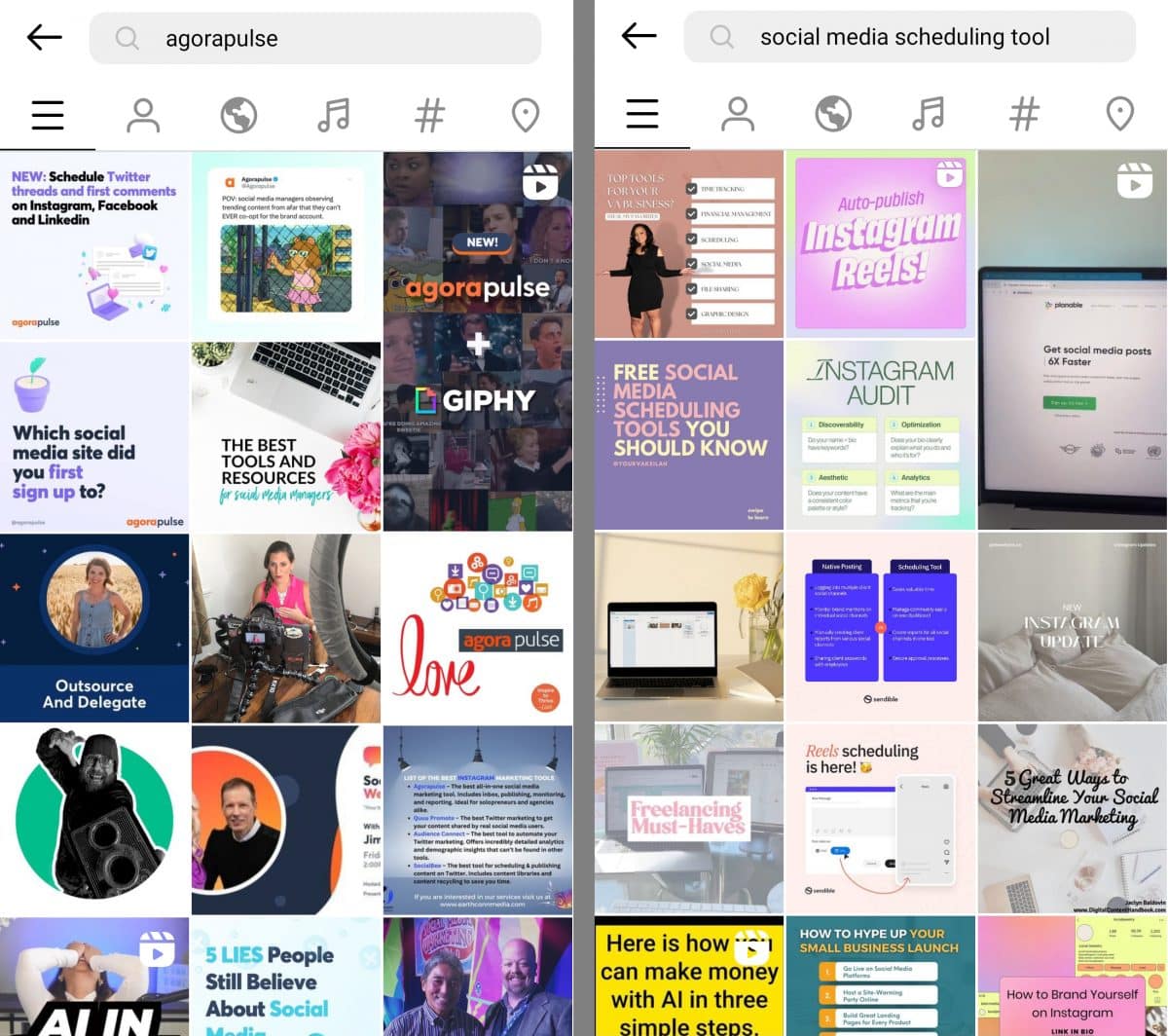
Know where your audience is on social media channels.
To check whether people are talking about your brand or your category on social media, do an in-app search. For example, a search for “Agorapulse” (above) confirms that many social media marketers and creators are actively talking about our solution. And searching Instagram for “social media scheduling tool” confirms that thousands of posts are talking about our category.
The competition is using social media for sales and leads
If your audience is on social media and your competitors are actively using this channel, your organization could be missing out on a lot of leads and sales. You can research the competition by searching for their brand names and viewing their profiles.
Then ask some questions. Are they posting content consistently? Is their content generating engagement—including reactions, comments, and shares? Explore the search results further to see what customers are saying.
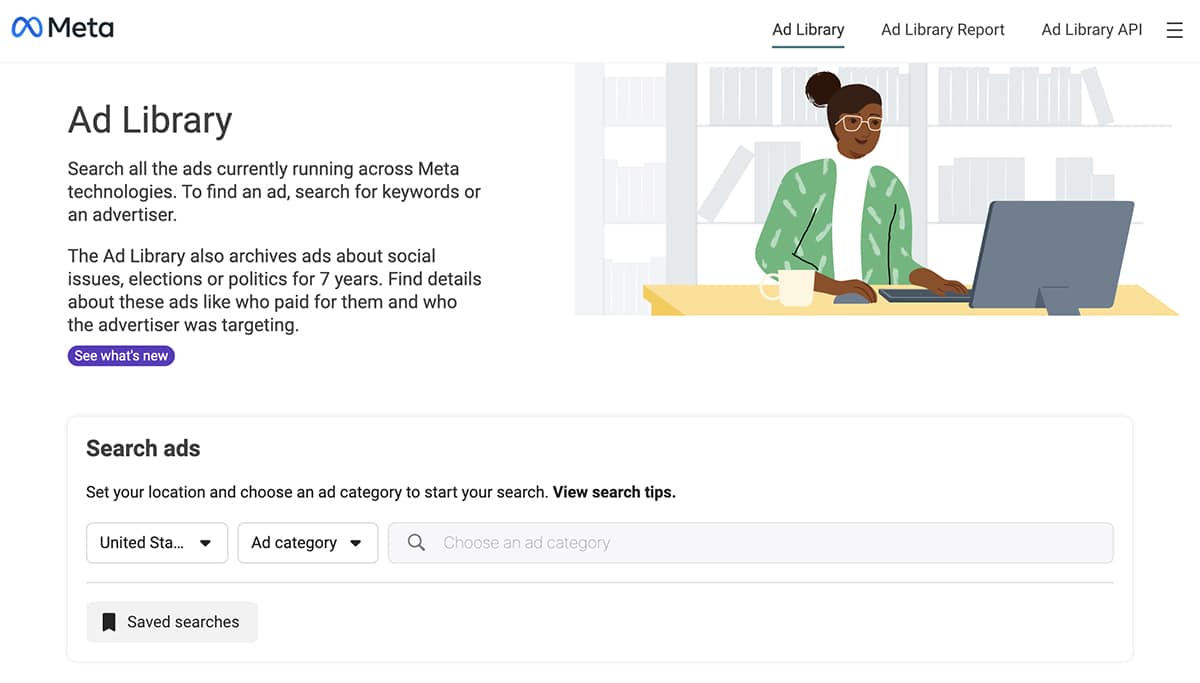
Example of doing competitive research
Next, use the platforms’ ad libraries to see if your competitors are running ads. For example, you can search the Meta Ad Library (above) and browse active ads from any business. It reveals how many ads the competition is running and how they look.
Your team lacks social media expertise
In some cases, it might make sense to delegate certain social media channels or campaigns to existing team members. For example, you might have a small budget or planning a small test prior to a major investment.
But if you don’t have in-house social media expertise to draw on, getting your team up to speed can waste time and money. Instead, supplement your team by hiring a social media expert who is already fluent in channels, tactics, and tools.
Your social media campaigns have gotten terrible results
Have you tried building a brand presence or running a few test campaigns—and seen dismal results? Before you decide that social media isn’t a good fit for your business, consider hiring or contracting a social media specialist.
Experienced marketers can audit your social media accounts, create content that resonates, and develop and implement strategies based on your business goals. Many can manage both organic and paid campaigns to boost your brand’s success.
Skills and Qualities to Seek Out in a Social Media Manager
Use the hard and soft skills below as a baseline for qualifying social media marketers. Depending on the seniority level of the position and the social media channels in question, you may need to add a few other qualifications—like management skills.
Technical requirements for social media managers
Any social media marketing specialist you hire should have the following hard skills.
Social media platforms
Social media managers continually learn on the job, especially as new platforms and tools arrive on the scene. But any marketer you hire should already be adept at using the social platforms that your business plans to adopt—like Facebook, Instagram, LinkedIn, and TikTok.
Candidates’ expertise should extend beyond using these platforms for their own personal profiles.
Social media managers need experience with business tools like Meta Business Suite, LinkedIn Business Manager (below), and Instagram professional accounts.
However, it’s important to set appropriate expectations. Most social media professionals are fluent in at least a few platforms. But it’s difficult to find a candidate who has expert-level experience with all major platforms.
Social media scheduling tools
Native tools can certainly work when you need to post content in real time or engage with your community. But when you intend to plan campaigns in advance or scale content across channels, you need a candidate who understands how to use social media scheduling tools.
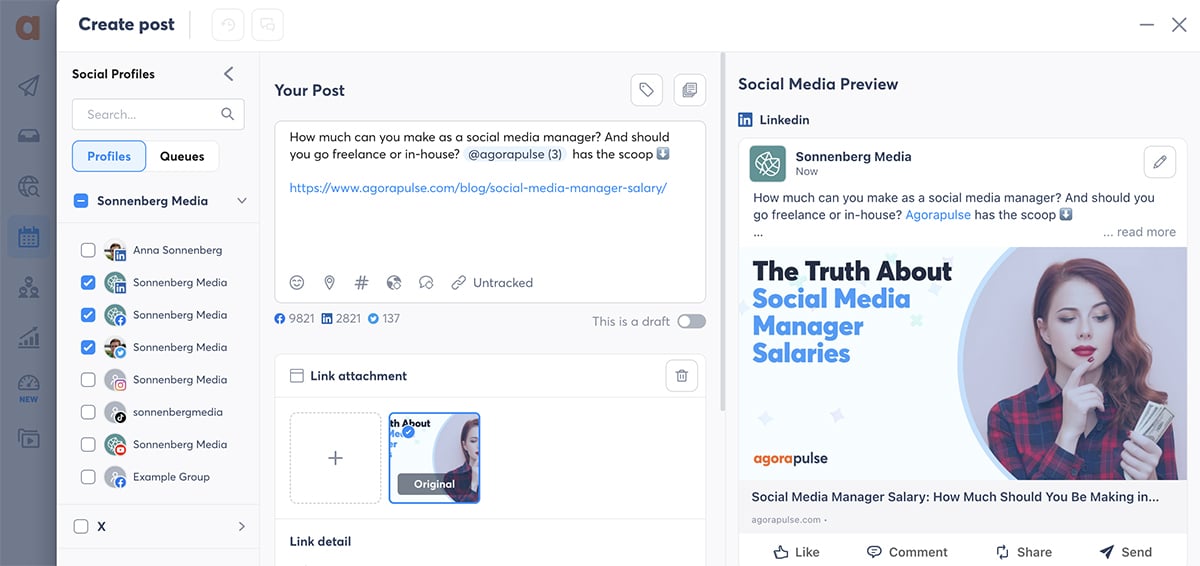
Social media schedule tool example: Agorapulse
For example, Agorapulse helps social media marketers manage multiple channels and accounts with a single dashboard. Using this tool, marketers can schedule content across all major social channels, respond to engagement, review social listening results, report on social media campaigns, and measure social media ROI.
Advertising platforms
You might be wondering, “Should I hire a social media manager who can oversee both paid and organic campaigns?” If your business goals require rapid growth or securing leads and sales beyond what you can achieve organically, then you’ll likely need to include paid social in your strategy.
Look for candidates who have experience with Meta Ads Manager (above), LinkedIn Campaign Manager, and other native ad platforms. If your tech stack includes a third-party ad optimization platform, make sure to include it in your job description.
Graphic design and video editing skills
If your organization has a dedicated design team or if you contract a creative agency, then graphic design and video editing skills may not be necessary. But if you plan to rely on your new social media manager to design images or edit short-form videos, these skills are crucial.
Look for candidates who have experience with graphic design apps like Canva (above), video editing apps like CapCut, and other tools that your marketing team uses to produce creative assets.
Copywriting skills
Even if your images and videos are the stars of the show, social media content requires strong copywriting skills.
Good copywriting can do everything from educating customers and building communities to generating leads and making sales.
Any candidates you choose should already have solid skills in this area. But they should also be able to adopt your brand voice and style, ultimately applying copywriting best practices while communicating on behalf of your brand.
Analytical skills
For most social media roles, copywriting and design are just part of the process. The perfect social media manager also needs excellent analytical skills.
With these skills, they can review paid and organic campaign reports, gain insights, and apply what they’ve learned. Analytical skills also help marketers measure the ROI (return on investment) from their efforts so they can make smarter data-driven decisions.
After all, successful social media management is about much more than vanity metrics like comments or followers. Knowing how to measure and optimize for revenue-related results is crucial in this field.
Free Ebook: Everything You Need to Know About Social Media ROI
Soft skills for social media managers
To do their jobs well, social media experts also need the following soft skills or qualities.
Sense of creativity
Ideally, you’ll want to hire someone who always has new ideas for sharing marketing messages and making them engaging for your audience. Seek out a candidate who can turn a basic brief into a campaign concept that excites your team and resonates with your audience.
Related article: How to Be More Creative on Social Media
Great time management
Social media campaigns have a lot of moving parts, especially if they align with other channels. Look for a candidate who can juggle multiple projects at once and deliver everything on time—without missing a deadline.
Adaptability and flexibility
No matter how well you plan, you might find that marketing campaigns need last-minute changes or that priorities have changed overnight. Seek out a candidate who demonstrates adaptability and who can shift focus based on the needs of team members and stakeholders.
Collaborative work style
Even on small marketing teams, social media managers typically work alongside colleagues and stakeholders. In many cases, they also need input from other teams and approvals from managers. Look for a candidate who has a proven ability as a team player and who knows how to work with others.
Strategic thinking
As a CMO or marketing leader, you likely guide marketing strategy for your organization. You need a social media marketer who has a deep understanding of strategy and who can build campaigns based on these larger goals. Seek out a candidate who has experience translating social media strategies into content and campaigns.
Desire to learn and improve
Why hire a social media manager who wants to learn and improve? Social media changes every day—and sometimes by the hour. To use social networks effectively, participate in relevant conversations, and continue making progress toward key goals, you need a social media professional who follows industry trends and who is eager to experiment.
How to Hire a Social Media Manager: 5-Step Process
Now that you have an idea of when and whom to hire, you’re ready to start recruiting. Use these five steps to streamline your process.
1. Decide whether to hire a freelance social media manager or stay in-house
First, clarify whether the role will be a full-time in-house job or a freelance contract. In addition to input from your organization’s HR department and executive team, use these questions to guide your decision:
- Will the role be permanent? If so, hire in-house. If not, contract a social media freelancer.
- Does the role require a full-time commitment? If so, an in-house role is probably best. For a limited-term full-time commitment or for a part-time role, a freelancer might work.
- Does the role demand significant oversight? If so, add to your in-house team. If the role is relatively independent, a freelancer could be more cost-effective.
2. Create a list of social media channels and responsibilities
To write a comprehensive social media manager job description, make a list of everything that falls under this role. Start with the channels this team member will manage. Make sure to specify whether the scope includes organic or paid campaign management for each channel.
Next, list the responsibilities this role entails. For example, tasks might include:
- Designing social media graphics and editing short-form videos
- Writing social media captions or paid social copy
- Building social media campaigns
- Moderating social media engagement
- Cultivating an online community for customers
- Using social listening tools to monitor brand reputation
- Reviewing social media analytics and ROI to evaluate and improve campaigns
In addition to listing tasks, clarify the larger goals this role should accomplish. Use business goals like brand equity, lead generation, or online sales to guide you.
Finally, list the skill and educational requirements for this role. Use the technical capabilities and soft skills above to inspire your list. Include any relevant certifications (below) as well as any professional requirements (i.e., minimum number of years in the field).
3. Set a realistic pay range
Once you’ve decided on the role type and scope, you can set an appropriate salary. How much should you expect to pay a social media manager? As of April 2023, the average social media manager salary in the U.S. is about $57,000 per year.
But the salary that your business should expect to pay depends on several factors:
- The role type and time commitment, as in-house employees generally receive annual salaries. In contrast, freelance contractors charge per project, per hour, or per month.
- The seniority level, as more experienced marketers naturally expect higher pay than entry-level social media assistants.
- Your business’s location, especially if you expect employees to work in the office. If you offer remote roles, the pay may depend on employees’ locations instead.
- Your business’s industry, as many professional service providers and B2B companies pay higher salaries compared to B2C brands.
- The benefits your business offers to full-time employees, which may include health insurance, paid time off, retirement contributions, and in-office or at-home perks.
4. Publish the social media manager job listing
After working out the details of the role and writing the job listing, you’re ready to start to connecting with candidates. So where are the best places to find a social media manager for hire?
If your company works with recruiters, they’re likely your best bet for filling a social media role. Using their networks and your job listing, recruiters can connect you with qualified candidates.
But you don’t necessarily need a recruiter. Instead, start by publishing the opening on your company’s website, especially if your business has a careers page.
Then upload the job listing to LinkedIn, where candidates can search for your job opening and apply directly. It’s also a good idea to post the listing in Facebook groups, Slack channels, and online forums for social media marketers.
If you’re looking for a freelance social media marketer, you can also consider using a marketplace like MarketerHire.
5. Vet social media candidates
Whether you’re hiring for an in-house-role or a freelance gig, you’ll want to make sure you’re selecting the right candidate. Use these tips to vet social media marketing candidates before moving forward with a hire.
Check credentials and certifications
You might prefer to hire a social media manager with a degree in marketing or communications. But it’s also helpful to look beyond college degrees and consider professional certifications.
For example, the Meta Blueprint program (above) has several options for certification in digital marketing, community management, and other areas of Facebook marketing.
Agorapulse has its own academy (below) that certifies experienced platform users.
Review portfolios or work samples
As important as education-related credentials are, work experience can tell you even more about a candidate. Review candidates’ portfolios or work samples to get a sense of the types of campaigns they’ve built. Ask questions to learn more about candidates’ strategic thinking, problem solving skills, and platform knowledge.
Assign a test campaign
It can also be helpful to test candidates’ skills with a campaign assignment. If you request a test assignment, respect candidates’ time and effort.
Ask for an assignment that you estimate will take no longer than an hour to complete. In addition, make it clear that you won’t be using the work they produce in a real campaign for your business.
Wrapping Up What We Covered About Hiring a Social Media Manager
When you have a brand to build and marketing campaigns to implement, you can’t risk onboarding the wrong team members. With the suggestions above, you can plan your recruiting process more efficiently and invest resources in hiring the right social media manager for your business.



